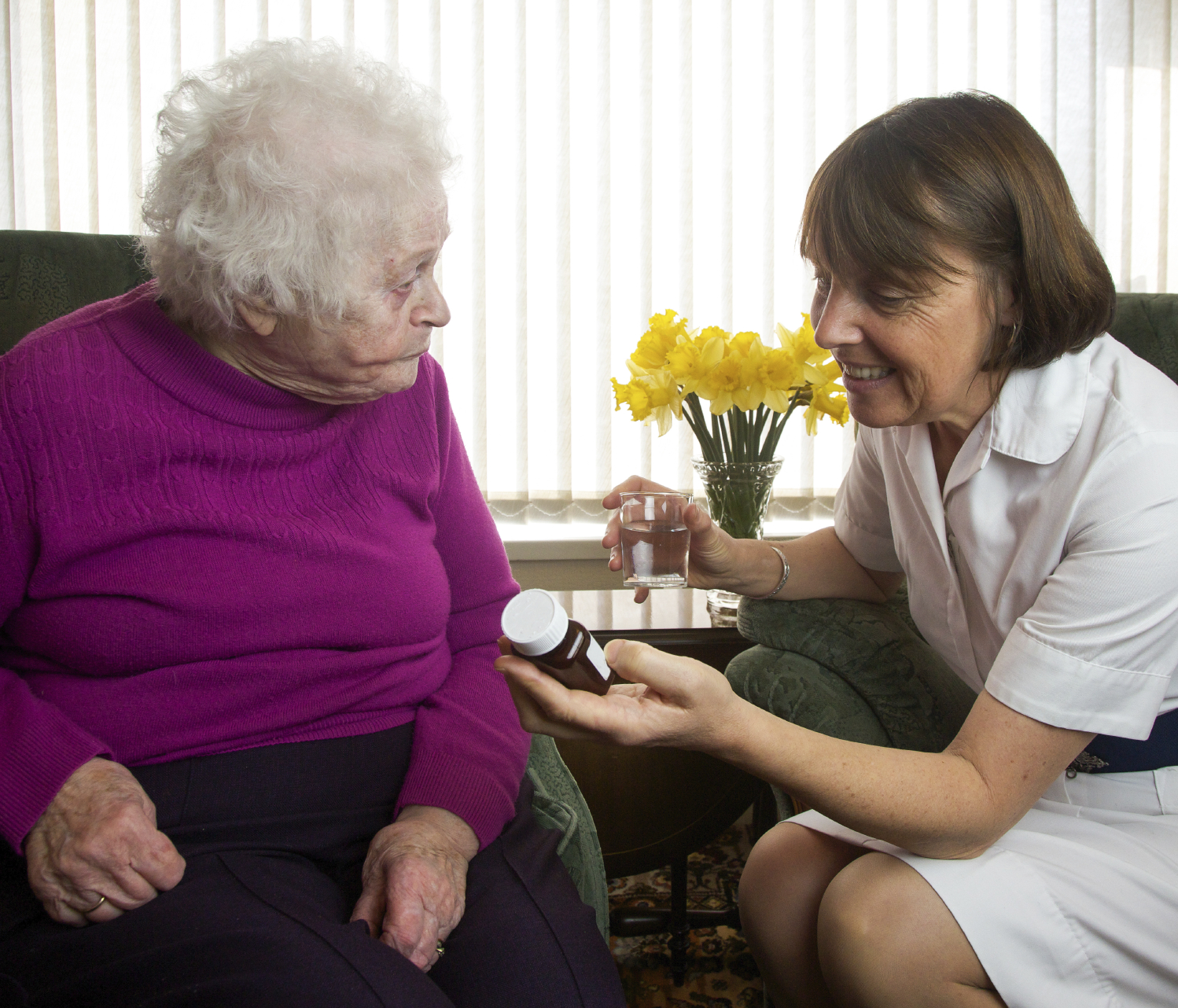AARP Hearing Center
A home health care tsunami is coming. Recent research estimates that by 2020 the United States will be short 800,000 to 1 million nurses because of large numbers of retiring nurses, few new graduates entering nursing, lack of educational capacity and job dissatisfaction and attrition.
According to The Institute of Medicine, as the Baby Boom generation grows to 20 percent of our population, the health care workforce size and preparedness will not meet the need and result in a health care crisis. At the risk of sounding a bit like "Chicken Little," we must pay serious attention to these warnings and determine how we can care for the elderly and disabled moving forward. We must find ways to be economically efficient, as well as ensure that care is delivered safely and effectively. We must also be ensure that vulnerable folks receive medication in a timely fashion as ordered to avoid further decline.

One way to achieve this is to allow nurses to expand the number of tasks they can delegate to trained professional home health aides to include administering medicine to patients. Right now nurses in NJ are prohibited from delegating this task to aides. This often leaves unpaid and untrained family caregivers – who can’t afford or find a nurse to come into the home - with no option but to perform these tasks themselves.
New Jersey is behind the times and needs to catch up. We rank 29 th in the country with respect to the number of task nurses are allowed to delegate to trained aides. It’s time to fix this.
Oregon successfully implemented nurse delegation in 1978 so that older people and those with disabilities could live with independence and dignity in their homes. In 1995, Washington authorized nurse delegation, including medication administration, decades ago. Studies conducted for the Washington legislature found no evidence of coercion, and no adverse effects on consumers. Instead, they found improvement in quality of care, supervision of what had been an unlicensed practice and better preparation of home health aides.
The evidence for expanded nurse delegation was clearly established by NJ’s own 2008-2011 Nurse Delegation pilot project, administered by the New Jersey Department of Human Services, with permission from the NJ Board of Nursing. This project engaged nurses at 19 agencies in delegating health maintenance tasks, including medication administration, to select clients by certified home health aides who were trained and supervised by those nurses.
The project was independently evaluated by the Rutgers Center for State Health Policy. The findings concluded that there were no adverse outcomes to consumer health, and there were higher levels of satisfaction for aides and consumers, and positive effects in the health and quality of life of patients.
Not only is the quality of care improved. Nurse delegation also saves everyone a lot of money. The independent research firm, Mathematica, determined that the cost of nurse delegation in New Jersey, per beneficiary, per year, is slightly less than the cost of four days in a nursing facility.
Under medication administration delegation nurses assume an even greater role in assuring that their patients receive safe care. They will do this by training professional, trained aides to care for each individual. Instead of our nurses traveling from place to place to dispense medication, they can use this additional time to more effectively and efficiently to assess their patients evaluate their care plans and make changes as necessary.
Delegation changes the family caregiving environment by removing some of the burden from caregivers, thereby allowing them to attend to their many other responsibilities to job and family. When nurses are able to delegate to a well- trained and competent home health aide, the family caregiver, who would otherwise be performing the medical task, no longer needs to run home or hire a nurse. For working family caregivers, this expansion of delegation can prevent them from having to take time off or jeopardize their job.
So let’s catch up in the Garden State for the sake of our loved ones, our health care professionals and our health care system. Expanding delegation empowers nurses to do what they do best: Assess the patient, formulate a nursing diagnosis, develop and implement a care plan that includes delegating medication administration when appropriate, and evaluate their plan and work.
The good news is, Change just might be on the way. The New Jersey Board of Nursing has proposed changing NJ’s out-of-date regulations to allow the delegation of medication administration to trained home health aides and catch up to our own research findings. That recommendation is now under administrative review. It is time to finish the job.
We’ll all be healthier for it.
- Susan McDermott, RN, former director of the New Jersey Nurse Delegation Pilot
- Evelyn Liebman, Associate State Director for Advocacy, AARP New Jersey































































